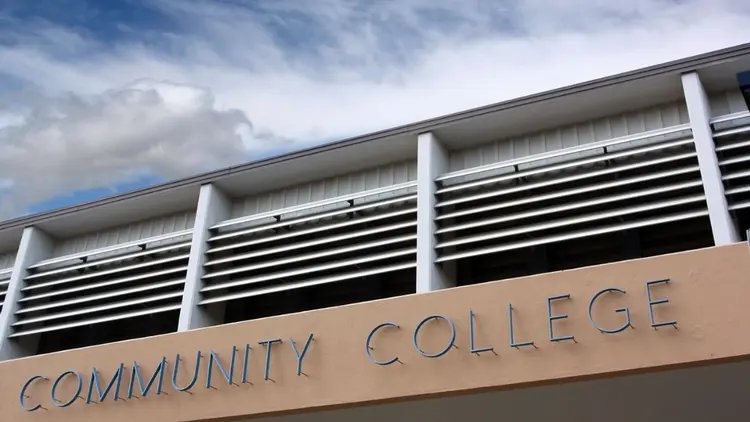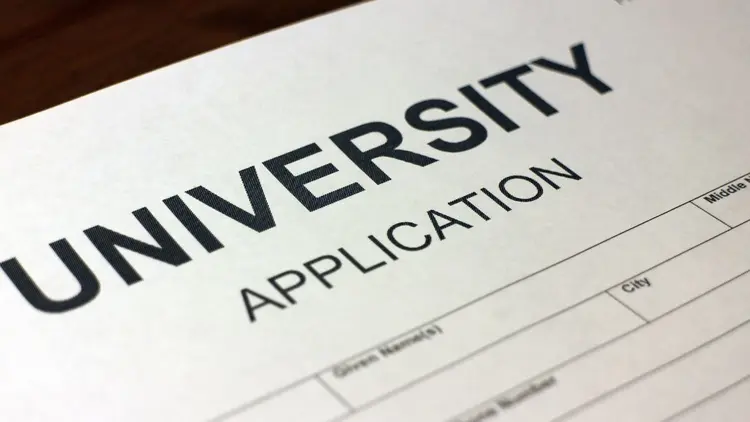In today’s digital era, the landscape of higher education is undergoing a seismic shift, thanks in no small part to the burgeoning realm of online education. The question on many aspiring students’ minds is: “Do universities accept online courses?”
It’s a query that echoes through the hallowed halls of academia and into the bustling, virtual classrooms of the internet. Let’s dive into this digital conundrum, unpacking the realities of online learning and its acceptance in traditional universities.
The Digital Shift in Education

Gone are the days when the only path to higher education was through brick-and-mortar institutions. Online education has carved its own prestigious niche, offering a plethora of courses ranging from philosophy to quantum physics. But how do these digital diplomas fare in the eyes of traditional universities?
The answer is as layered as a well-crafted lasagna. Many universities, from public institutions to top universities, have started to embrace online degree programs with open arms. This acceptance is not just a nod to the future of education but a recognition of the quality and depth online courses offer. For instance, esteemed platforms like Teach.io have become beacons of digital education, providing comprehensive guides and insights into the world of online learning for various fields, including nursing and general university courses.
Navigating University Admission: Can Online Courses Bridge the Gap?

The landscape of higher education is transforming, providing learners with innovative pathways to achieve their academic and career goals. Among these, online courses have gained prominence, offering a flexible and accessible means of acquiring knowledge and skills.
But can these digital classes serve as a bridging mechanism for aspirants who do not meet the traditional entry requirements for universities? This article delves into the potential of online course offerings to function as a stepping stone towards earning a bachelor’s degree for prospective college students.
Online Courses as a Gateway

Online degree programs have surged in popularity, attributed to their flexibility, diverse course offerings, and the ability to cater to learners worldwide. Most online degree programs are hosted on sophisticated learning management systems, ensuring an engaging and interactive educational experience. These platforms facilitate access to a broad spectrum of subjects, from humanities to STEM fields, enabling learners to acquire prerequisite knowledge or enhance their academic profile.
The Bridging Potential of Online Learning

For individuals lacking certain qualifications for university admission, online courses present an opportunity to bridge these gaps. By enrolling in relevant online classes, prospective students can demonstrate their commitment to personal growth and continuous learning. Whether it’s mastering a specific subject area or improving overall academic readiness, online learning platforms offer a plethora of courses designed to meet these needs.
Moreover, many universities recognize the value of online learning, with some institutions offering credit for completed online courses or considering them during the admission process. This acknowledgment underscores the potential of online education to serve as a legitimate pathway to higher education, especially for non-traditional students or those looking to shift academic tracks.
Community College Collaboration

Another avenue where online courses play a pivotal role is through community colleges. Many community colleges have expanded their online course offerings, providing an affordable and accessible means for students to begin their higher education journey.
In some cases, these institutions have agreements with universities that allow credits earned through online classes to be transferred towards a bachelor’s degree program. This pathway is particularly beneficial for students who wish to ease into the university setting or who need to balance their studies with other commitments.
Considerations for Prospective Students
While online courses offer a viable path to university admission, students should conduct thorough research to ensure their efforts align with their academic goals. This includes verifying whether their target universities accept online course credits, understanding the accreditation of the online degree program, and assessing the quality of the institution’s learning management system. Additionally, learners should be prepared for the self-discipline and time management required to succeed in online classes.
Online courses have undeniably expanded the horizons of educational possibilities, providing a bridge for many aspiring college students towards achieving a bachelor’s degree. Through strategic enrollment in online classes, learners can not only fulfill missing prerequisites but also enrich their knowledge base and academic credentials. As the intersection between traditional and digital education continues to evolve, the role of online courses in facilitating university admission is poised to grow, marking a significant shift in how educational qualifications are attained and recognized.
The Acceptance of Online Courses by Universities

The acceptance of online courses by universities is a nuanced affair. It largely depends on the institution, the course in question, and the accreditation of the online program. Accredited institutions, be they nonprofit colleges or for-profit entities, have set a standard in online education that rivals, and in some cases surpasses, traditional in-person learning.
Online degree programs, especially from accredited institutions, have seen a significant uptick in recognition. These programs offer everything from bachelor’s degrees to advanced degrees in fields like business administration, health professions, and data science. The curriculum is rigorous, the coursework mirrors its on-campus counterparts, and the degrees hold the same weight upon completion.
Real-Life Impact and Employer Recognition
The tide is turning in how employers view online degrees. No longer are they seen as the lesser siblings of traditional degrees. Thanks to the direct application of online learning to career development, employers recognize the value of employees who pursue further education online. The ability to balance family life, work, and education is a testament to the dedication and time management skills of online learners.
Flexibility and Accessibility: The Core of Online Learning
One of the most lauded features of online education is its flexibility. Online degree programs can be tailored to fit around personal and professional commitments, making higher education more accessible than ever. Whether it’s a busy single parent aiming for a degree in political science or a full-time worker pursuing an MBA, online learning accommodates a diverse range of student needs.
This flexibility extends to the pace of learning as well. While a traditional degree might take the standard four years, an online degree can be accelerated or slowed down to match the learner’s schedule. This adaptability is a game-changer for many, allowing students to earn a degree without putting their lives on hold.
The Comprehensive Support Systems Behind Online Learning
Behind every successful online student is a robust support system. Universities offering online programs understand the unique challenges faced by distance learners. From sophisticated learning management systems that provide an immersive educational experience to student support services that offer counseling, career advice, and technical support, online students are well-equipped to succeed.
Financial aid is another critical aspect where online education mirrors its traditional counterpart. Students in online programs can access federal financial aid, scholarships, and other financial resources to help manage the school’s tuition and associated costs.
The Social Aspect of Online Learning

Contrary to popular belief, online learning is not a solitary journey. Through forums, video conferences, and group projects, students engage with peers and professors in a dynamic, interactive environment. This sense of community fosters collaboration and deepens the learning experience, bridging the physical gap between students.
The Future of Online Education

The trajectory of online education is steeply upward. With advancements in technology and a growing acceptance among traditional universities and employers alike, the future of online learning is bright. Massive open online courses (MOOCs), online bachelor’s degrees, and graduate-level studies offered online are becoming increasingly prevalent, reflecting a shift towards a more inclusive, flexible, and quality-driven approach to higher education.
Embracing the Digital Revolution

As we navigate the complexities of the digital age, the question of whether universities accept online courses is becoming less of a query and more of a statement. Yes, universities do accept online courses, and they do so with an understanding that the future of education is inherently digital. This acceptance is not merely about integrating technology into learning but about recognizing the legitimacy and potential of online education to empower students worldwide.
In essence, the world of higher education is expanding its horizons, acknowledging that learning is not confined to physical classrooms. With institutions like Teach.io leading the charge, online education is not just an alternative but a preferred choice for many, offering a pathway to knowledge that is accessible, flexible, and, most importantly, recognized.
Conclusion

In summary, the trend of universities recognizing and accepting online courses is on the rise, reflecting a significant shift in the educational paradigm. Students from various backgrounds, whether directly from high school or those pursuing a degree online later in life, are increasingly turning to an online class as a viable means to earn college credits and supplement their academic portfolios.
The convenience and broad access to education that online courses offer make them an appealing option for individuals aiming to advance their education. It’s crucial, though, for students to confirm the compatibility of their online coursework with their intended college degree programs and to seek support from student services when necessary.
As the educational landscape continues to evolve, the pathway provided by online courses towards achieving a college degree is becoming more recognized, underscoring the growing acceptance and value of online education within the academic world.






Build once, earn forever
Are you ready to start making an income from your skills? Explore the full potential of our cutting-edge course creation platform with a 14-day FREE trial, and start earning on autopilot.
Try For Free
